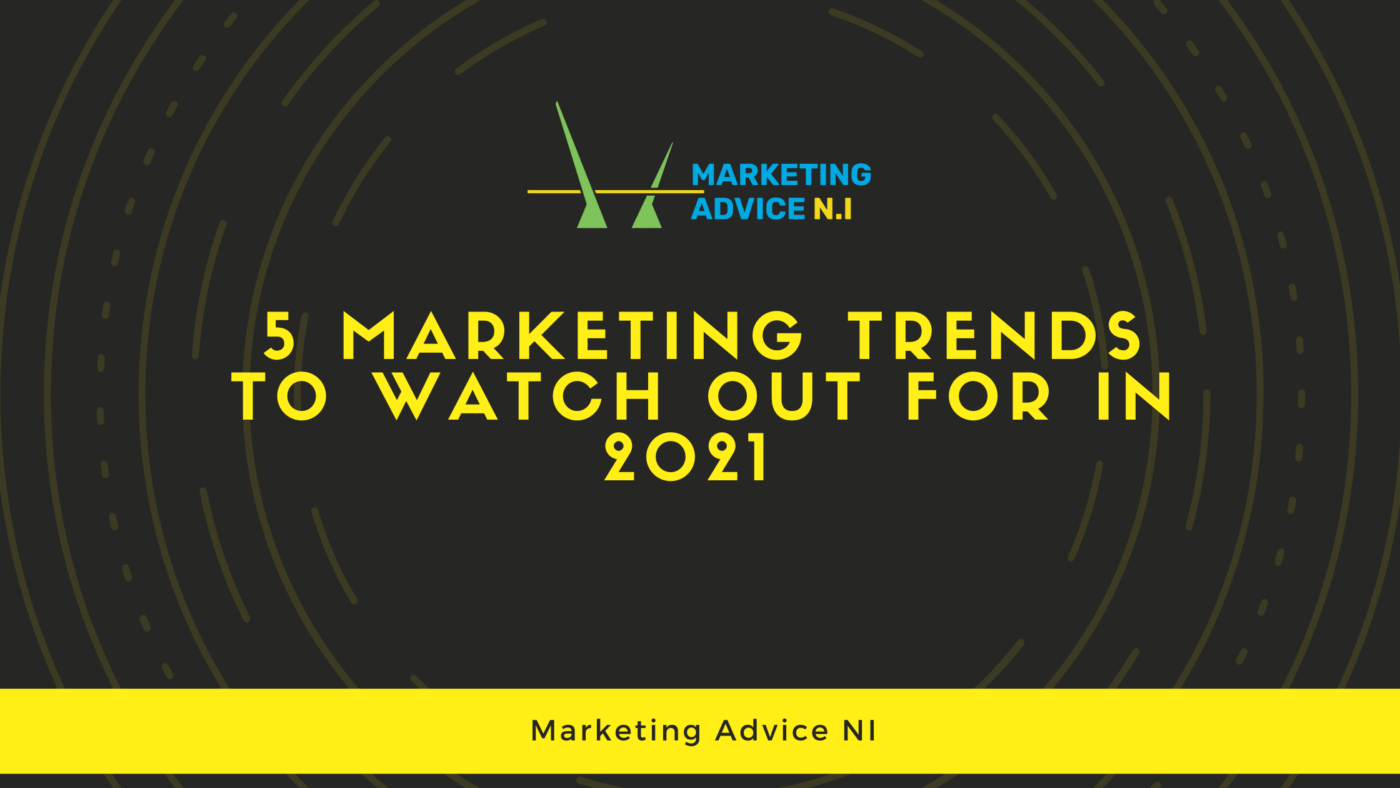Sections
- 1 The 5 Marketing Trends that will be Dominating the World of Tomorrow
- 1.1 1.) The continued power of first-party data
- 1.2 2.) Digital transformation is becoming more present in many companies. One of the major struggles with change is that it’s difficult for some people to overcome their old habits & behaviours.
- 1.3 3.) Personalising to become customer-first and solve for data weariness
- 1.4 4.) More intelligent use of nudging, neuro-marketing or behavioural economics
- 1.5 5.) Connectedness creates this sense of community. It’s not always easy or obvious, but you can always feel it when it is present.
The 5 Marketing Trends that will be Dominating the World of Tomorrow
Digital marketers need to keep up with the trends and implement them so they can be better prepared for future challenges. Here are some of the most relevant trends, as well as advice on how you can use them.
As marketers, one of the most important things that we do is identify digital marketing trends and try to stay ahead of them. Doing so will help us ensure that our strategies are relevant and ready for the future. These five trends are crucial for doing exactly that.
1.) The continued power of first-party data
The collection of first-party data has always been a primary aim for businesses. With the information gathered directly from clients, businesses can have a clearer, truer picture of a customer’s mindset. This kind of insight will allow them to better understand their preferences and gain a competitive advantage.
This enables businesses to use their marketing efforts more effectively, delivering a more relevant and personalised message to convince the potential customer that they are the right company for them.
2.) Digital transformation is becoming more present in many companies. One of the major struggles with change is that it’s difficult for some people to overcome their old habits & behaviours.
A great marketing strategy is able to use customer data effectively and ambitiously, but this isn’t the case for every business. Some businesses had to shift their business model (and mindset) in order to deal with the pandemic- including how they did things like marketing.
3.) Personalising to become customer-first and solve for data weariness
The first trend we discussed was about how data from your own website or organisation can help make your messages and experience more personal. Done well, personalisation is hugely powerful, with 90% of marketers saying it significantly contributes to business profitability, and 61% of people expecting brands to tailor experiences based on their preferences.
Customer data is essential for personalisation and customers may be wary of voluntarily sharing such information. They’ve seen how this type of information has been misused before and/or don’t see any real benefit to it.
Gamification is a way to add a little excitement to the customer journey and reward users for their attention. It can help you collect marketing permissions, understand what they enjoy or promote brand awareness in a potentially engaging way by getting them to spend more time with your site.
4.) More intelligent use of nudging, neuro-marketing or behavioural economics
Social media trends seem to suggest that neuromarketing becomes more important with time. This is because marketing strategies are becoming less straightforward and more nuanced. A great example of this is the power of nudging, which taps into the psychology of behavioural economics.
This simple concept turns browsing behaviour into purchasing, which can be powerful for your business. Shove (a ‘nudge’) is a suggestion to consumers that they can easily avoid, but that can also influence their decision making.
5.) Connectedness creates this sense of community. It’s not always easy or obvious, but you can always feel it when it is present.
The pandemic has changed many aspects of our society, but it’s also changed how consumers behave. These changes have been especially visible in the way people spend & work.
Times have changed and people are looking for something more. Consumers are turning back into their local community, supporting each other in the process. This way, they know that they’re not alone in this new era.
And as lockdowns eased, it became increasingly important for us to reconnect with our employees through memorable and valuable events. People now want to embrace novel experiences after being deprived for so long. According to research done by Mintel, people want to play and explore the world whether it’s through virtual reality or in real life.

